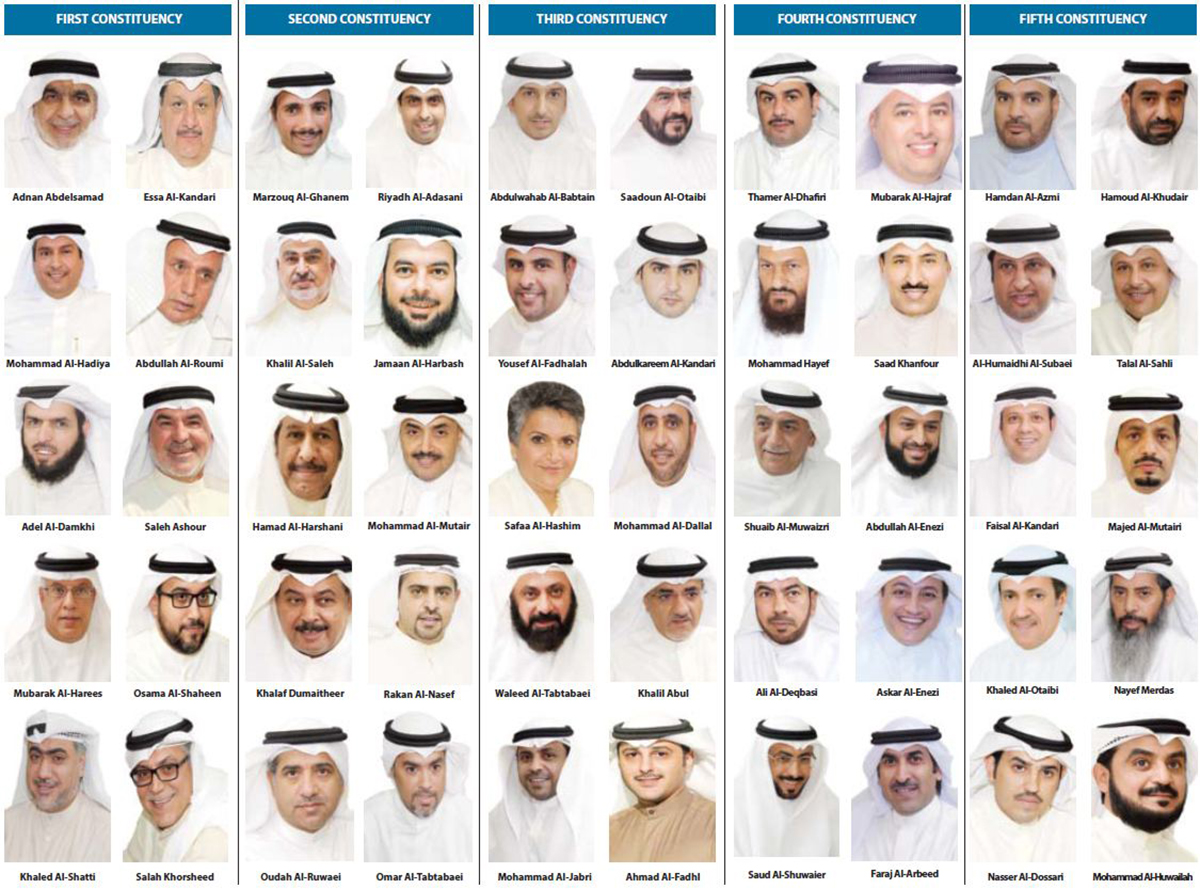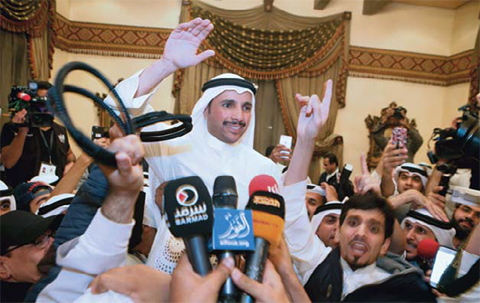Amir thanks state officials - 2 ex-ministers lose
 Click To View Larger
Click To View LargerKUWAIT: Opposition groups and individuals made an impressive showing in the National Assembly elections by winning almost half of the 50 seats, with Kuwaiti voters dealing a heavy blow to the previous Assembly that failed to stop the government from raising petrol prices.
The Islamist, nationalist and liberal opposition, which returned to the polls after a four-year boycott, won at least 15 seats, with between seven and 10 seats won by its allies.
This will enable the opposition to grill ministers and vote them out of office, which will considerably boost its power in the next Assembly. Islamists make the backbone of the opposition, with the Islamic Constitutional Movement (ICM), the local arm of the Muslim Brotherhood, bagging four seats and a few supporters.
They include Jamaan Al-Harbash, Osama Al-Shaheen and Mohammad Al-Dallal. Salafist Islamists also won four seats, including veteran former MPs Waleed Al- Tabtabaei, Mohammad Hayef and Nayef Merdas.
HH the Amir Sheikh Sabah Al-Ahmad Al-Jaber Al- Sabah sent cables to state senior officials and government bodies, voicing appreciation for the efforts they lavished to provide favorable conditions for the National Assembly elections to make it easy for voters to cast their votes.
HH the Amir lauded the huge turnout by citizens and their positive response to their national duty and responsibility, as well as the spirit of cooperation that dominated the scene between candidates and the electorate.
The Amir voiced deep thanks to members of the higher judiciary commission for their efforts in supervising the elections.
HH the Crown Prince Sheikh Nawaf Al-Ahmad Al-Jaber Al-Sabah also sent similar cables. The voting saw a heavy turnout with unofficial figures putting the turnout at least at 70 percent, much higher than the previous two elections boycotted by the opposition.
Kuwaiti voters severely punished the dissolved Assembly members, with only 20 of the 50 members re-elected. They included former speaker Marzouq Al-Ghanem and former MPs Adnan Abdulsamad and Saleh Ashour.
Twenty-two members of the dissolved house failed in their re-election bid, while eight others did not run in the polls. Two of three former ministers - Ali Al-Omair (public works) and Yacoub Al-Sane (justice and Islamic affairs) were not reelected, but former minister of communications Essa Al-Kandari won easily.
People are upset from the previous Assembly for approving a large number of unpopular laws and for failing to prevent the government from raising the prices of petrol and other services. But the opposition’s win raises fears that the country will return to political crises like before the 2013 era. Opposition candidates have raised a number of key issues as their priorities.
These include a pledge to prevent the government from applying austerity measures against Kuwaiti citizens and a promise to settle the controversial issue of revoking citizenships. They also vowed to amend or completely change a number of highly oppressive legislations like the DNA test law, imposing controls on the Internet and others. The election passed without any incident and without allegations of rigging or deliberate errors. The Shiite minority was reduced to just six MPs from nine in the previous Assembly. They won only four seats in their main stronghold in the first electoral district.
By B Izzak











